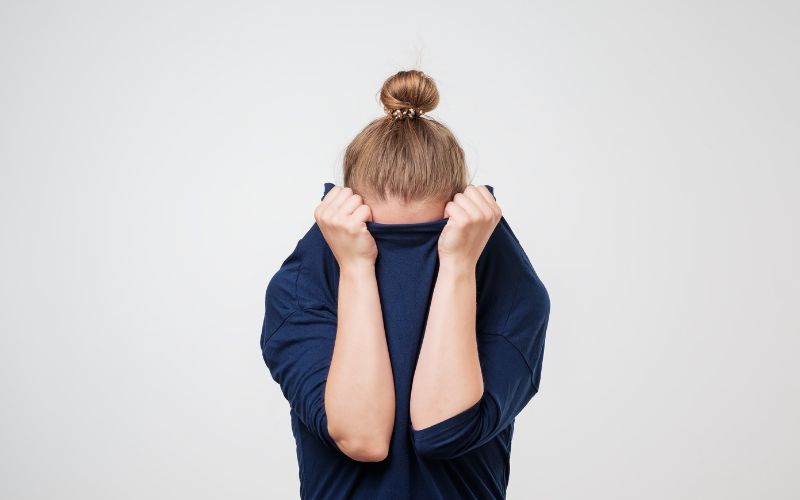Phobia Treatment with Dr. Samyuktha – Expert Care for You

Introduction
Phobias are intense, irrational fears of specific objects or situations that can severely impact an individual’s daily life. While common, they can cause significant distress and avoidance behaviors, interfering with one’s ability to function normally. Dr. Samyuktha, a renowned psychiatrist at Pushpa Mind Care, specializes in the treatment of various phobias, providing compassionate and evidence-based care to help patients overcome their fears and regain control of their lives.
Understanding Phobias and Its Impact

Phobias are classified into three main categories:
- Specific Phobias: These involve an intense fear of a particular object or situation, such as heights (acrophobia), spiders (arachnophobia), or flying (aviophobia).
- Social Phobia: Also known as social anxiety disorder, this involves a fear of social situations where one might be embarrassed or judged by others.
- Agoraphobia: This involves a fear of situations where escape might be difficult, such as being in a crowd or traveling in a vehicle.
Phobias can develop from a combination of genetic predisposition, brain chemistry, and personal experiences. Early intervention and treatment are crucial for effective management.
Symptoms and Diagnosis
Symptoms of phobias can vary but often include:
- Intense fear or anxiety disorder triggered by the object or situation
- Avoidance of the feared object or situation
- Physical symptoms such as sweating, trembling, or heart palpitations
- Difficulty functioning in daily life due to the fear
Diagnosis typically involves a comprehensive evaluation by a psychiatrist like Dr. Samyuktha, who will take into account the patient’s medical history, symptoms, and any underlying
Treatment Approaches
Dr. Samyuktha employs a multi-faceted approach to phobia treatment, tailored to the unique needs of each patient. The primary treatment modalities include cognitive-behavioral therapy (CBT), exposure therapy, medication, mindfulness practices, and alternative therapies like hypnotherapy and Eye Movement Desensitization and Reprocessing (EMDR). Each approach aims to reduce fear responses, modify negative thought patterns, and help individuals gradually face their phobic triggers.
Cognitive Behavioral Therapy (CBT)

CBT is a cornerstone in phobia treatment. It involves identifying and challenging irrational fears and beliefs. Through structured sessions, individuals learn to replace negative thought patterns with more realistic ones, reducing anxiety and improving coping mechanisms. CBT has a high success rate in treating various phobias, offering long-term relief and skills to manage future anxiety.
Exposure Therapy: Gradual Desensitization Techniques
Exposure therapy systematically desensitizes individuals to their phobic triggers. Starting with less threatening exposures, the individual gradually faces their fears in a controlled environment. This technique helps reduce the fear response over time, making it easier to confront and manage the phobia. It’s an effective method for long-term management and recovery.
Mindfulness and Relaxation Techniques for Phobia Control
Mindfulness and relaxation techniques, such as deep breathing exercises, meditation, and progressive muscle relaxation, are valuable tools in managing phobia-induced anxiety. These practices help individuals stay present, reduce stress, and enhance emotional regulation, making it easier to face and manage their fears effectively.
Alternative Therapies: Hypnotherapy and EMDR

Hypnotherapy and EMDR offer alternative approaches to phobia treatment. Hypnotherapy uses relaxation and suggestion to alter fear responses, while EMDR focuses on processing traumatic memories associated with phobias. Both therapies can be effective, especially for those who haven’t responded well to traditional treatments, providing additional avenues for recovery.
When to Seek Professional Help for Phobia Treatment
Professional help should be sought when phobias significantly impact daily life or cause intense distress. A mental health professional, like Dr. Samyuktha, can provide tailored treatment plans, support, and expertise to help individuals manage and overcome their phobias effectively, improving their overall quality of life.
Long-Term Management and Prevention of Phobias
Long-term management of phobias involves continuous practice of coping strategies, regular therapy sessions, and maintaining a healthy lifestyle. Early intervention, stress management techniques, and building resilience are crucial preventive measures to reduce the risk of developing new phobias or the recurrence of old ones.
Phobia Treatment for Children and Adolescents
Treating phobias in children and adolescents requires a specialized approach. Techniques such as play therapy, family involvement, and tailored CBT can help young individuals confront and manage their fears effectively. Early intervention is crucial to prevent long-term impacts on development, social skills, and academic performance.
Integrating Lifestyle Changes for Better Phobia Management
Incorporating lifestyle changes, such as regular physical activity, a balanced diet, sufficient sleep, and stress reduction techniques, can significantly enhance phobia management. These changes support overall well-being, improve mental health, and provide a strong foundation for coping with anxiety and fear.
Finding the Right Therapist for Phobia Treatment

Choosing the right therapist is crucial for effective phobia treatment. Research qualifications, experience, and therapeutic approaches to find someone who understands your needs. A good therapist-client relationship is essential, so finding a professional like Dr. Samyuktha, who provides personalized care and makes you feel comfortable, is key to successful treatment.
Why Choose Dr. Samyuktha at Pushpa Mind Care for Phobia Treatment?
Dr. Samyuktha, a leading psychiatrist at Pushpa Mind Care, offers comprehensive and personalized phobia treatment. With a deep understanding of phobia complexities and a commitment to evidence-based practices, Dr. Samyuktha ensures each patient receives the highest quality care. Her approach combines CBT, exposure therapy, mindfulness practices, and support group facilitation, all tailored to individual needs. Patients can expect a compassionate, professional, and effective treatment journey, leading to lasting recovery and improved quality of life.
Expert Opinions and Research Insights
Dr. Samyuktha’s approach is grounded in the latest research and clinical guidelines. According to the American Psychiatric Association, CBT and exposure therapy are the gold standards for phobia treatment. Studies have shown that up to 90% of patients experience significant improvement with these therapies.
Actionable Tips for Managing Fear
In addition to professional treatment, patients can take several steps to manage their phobias:
- Educate Yourself: Understanding your phobia and how it affects you is the first step toward managing it.
- Practice Relaxation Techniques: Regularly practicing techniques such as deep breathing and mindfulness can help reduce anxiety.
- Gradual Exposure: Gradually exposing yourself to the feared object or situation can help desensitize you over time.
- Seek Support: Joining a support group or talking to a trusted friend or family member can provide emotional support.
Book an Appointment
If you are ready to take the first step towards overcoming your phobia, book an appointment with Dr. Samyuktha today. At https://pushpamindcare.co.in/, we are committed to providing you with the highest quality of care in a supportive and compassionate environment.
Frequently Asked Questions (FAQs)
Studies indicate that up to 90% of patients experience significant improvement with cognitive behavioral therapy (CBT) and exposure therapy. The success rate can vary based on individual factors and the specific type of phobia.
The duration of treatment can vary. Many patients see significant improvements within 6 to 12 weeks of regular therapy sessions. However, the exact timeline can depend on the severity of the phobia and the individual’s progress.
Medications are not always necessary but can be helpful in managing severe anxiety symptoms. They are typically used in conjunction with therapy for the best outcomes. Dr. Samyuktha will evaluate each case to determine if medication is appropriate.
While some individuals may experience complete relief from their phobia symptoms, others may learn to manage and significantly reduce their anxiety. The goal of treatment is to improve quality of life and help patients function more effectively.
While it may not be possible to prevent phobias entirely, early intervention and addressing anxiety symptoms promptly can help mitigate the development of severe phobias. Building healthy coping mechanisms and seeking support early on can be beneficial.

